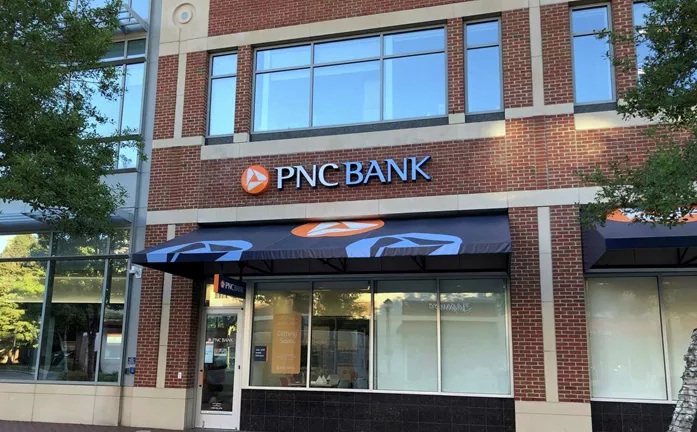PNC Financial Services Group, one of the largest banks in the United States, is actively exploring merger and acquisition (M&A) opportunities, particularly targeting banks with robust core retail deposits in the right markets. This strategic approach, highlighted by PNC’s CEO William Demchak at the Goldman Sachs Financial Services Conference in New York, underscores the company’s intent to bolster its market position by acquiring well-positioned financial institutions—while steering clear of banks burdened with heavy real estate exposure.
Demchak, who has led PNC through a period of significant growth, emphasized that the bank’s acquisition strategy would be centered on identifying potential targets with strong, sustainable deposit bases. “What we would look for is somebody with—think about what our strategic need was—right core retail deposits in the right markets,” he said, reflecting PNC’s preference for banks with strong customer relationships and a stable deposit franchise.
However, Demchak made it clear that PNC would avoid banks whose assets are closely tied to real estate or other sectors that carry excessive risk. “Many of these institutions have lost a lot of their core retail franchise and their deposit base is heavily related to real estate and assets we don’t want to own,” Demchak noted. He added that such deals “just don’t make sense” from a financial perspective, as the risk-reward dynamic does not align with PNC’s conservative acquisition criteria.
This stance comes as the banking industry braces for potential waves of consolidation. The U.S. banking sector has been seeing a growing trend of consolidation in recent years, driven by a combination of factors including tighter regulatory conditions, low-interest-rate environments, and the increasing pressure for banks to scale in order to compete. The regulatory landscape may shift further with the expected return of Donald Trump to the White House, potentially ushering in a new era of more lenient policies on bank mergers and acquisitions (M&A). Analysts believe that such changes could lead to an uptick in deals among large regional players like PNC, U.S. Bancorp, and Truist Financial.
Demchak has been vocal about the need for regulatory changes to allow for more competition in the U.S. banking system. Earlier this year, he sent a letter to U.S. regulators urging for a more flexible merger policy that could foster the creation of institutions capable of challenging the dominance of the largest Global Systemically Important Banks (G-SIBs). These massive financial institutions, which include names like JPMorgan Chase and Bank of America, dominate the U.S. financial system and are considered too big to fail.
In his comments at the conference, Demchak hinted at the growth prospects for the banking industry, noting that there would be “real growth in earnings” over the coming years, particularly as banks continue to adapt to shifting macroeconomic conditions. However, he acknowledged that for many institutions, the temptation to refrain from pursuing acquisitions may be strong, given the inherent growth opportunities in existing businesses. “Management looks at that and says, ‘Well, I don’t need to do anything because I’m going to grow earnings,’” Demchak said.
Despite these organic growth opportunities, Demchak’s focus on M&A reflects PNC’s broader strategy of fortifying its position as a top regional player by increasing its scale and reach. Core retail deposits remain a critical element of this strategy, as they provide a stable funding base and reduce reliance on more volatile sources of revenue, such as real estate or capital markets trading.
PNC’s interest in acquiring banks with strong retail franchises comes at a time when the U.S. banking landscape is undergoing significant transformation. Large regional banks, in particular, are increasingly positioning themselves for consolidation as they face mounting competitive pressures and regulatory challenges. By targeting acquisitions in regions where it can gain a larger customer base and build long-term relationships, PNC is positioning itself to benefit from the ongoing consolidation wave.
Moreover, Demchak’s vision aligns with the broader trend of regional banks seeking strategic acquisitions to complement their existing businesses. For example, PNC’s acquisition of BBVA USA for $11.6 billion, announced in 2020, expanded the bank’s footprint in key U.S. markets and provided a significant boost to its retail banking operations. With the right acquisitions, PNC aims to further enhance its customer-centric approach and deepen its presence in high-growth markets.
As the banking sector continues to evolve, PNC’s emphasis on acquiring banks with high-quality retail deposits reflects the importance of maintaining a solid foundation in consumer banking. While real estate-heavy institutions may present more immediate challenges, Demchak’s vision suggests that PNC is focused on creating long-term value through strategic acquisitions that strengthen its market position.
As industry experts predict increased M&A activity in the coming years, PNC’s proactive stance in identifying attractive targets positions it well for future growth, whether through organic means or strategic acquisitions. The focus on building a well-capitalized, diversified portfolio of banking assets will likely remain at the core of PNC’s strategy as it navigates the evolving landscape of U.S. financial services.
Read more:

